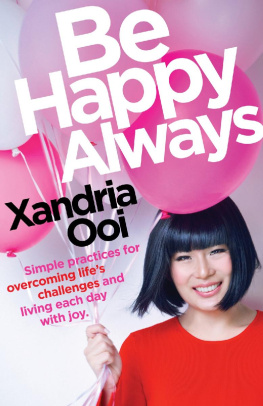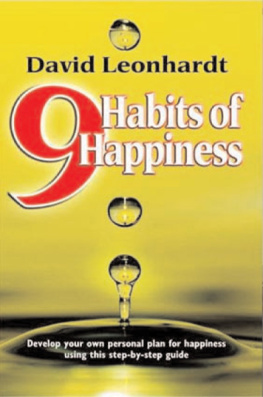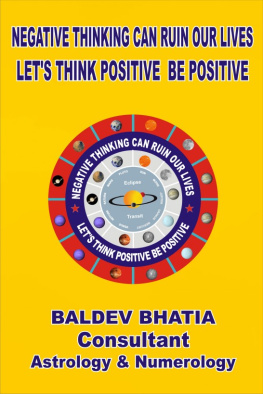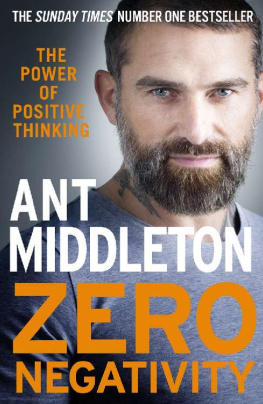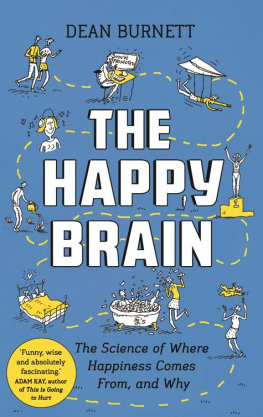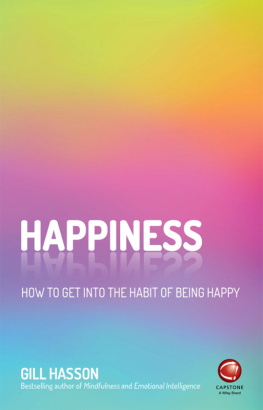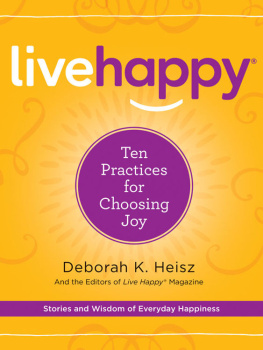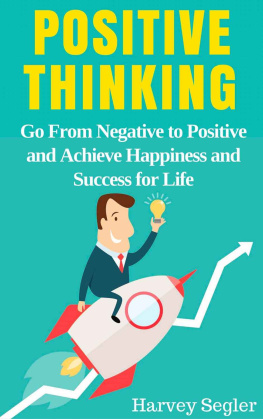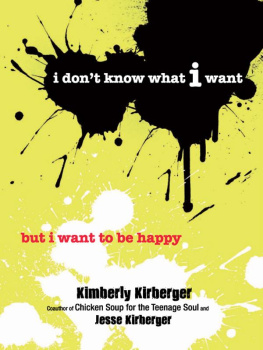Negatively Ever After

Copyright 2017 by Deanna K. Willmon
All rights reserved. No part of this publication may be reproduced, distributed, or transmitted in any form or by any means, including photocopying, recording, digital scanning, or other electronic or mechanical methods, without the prior written permission of the publisher, except in the case of brief quotations embodied in critical reviews and certain other noncommercial uses permitted by copyright law. For permission requests, please address She Writes Press.
Published 2017
Printed in the United States of America Print
ISBN: 978-1-63152-312-0
E-ISBN: 978-1-63152-313-7
Library of Congress Control Number: 2017940652
For information, address:
She Writes Press
1563 Solano Ave #546
Berkeley, CA 94707
Cover design Julie Metz, Ltd./metzdesign.com
Interior design by Tabitha Lahr
She Writes Press is a division of SparkPoint Studio, LLC.
Names and identifying characteristics have been changed to protect the privacy of certain individuals.
To all the perky, bubbly, Pollyanna-ish people.
Just kidding.
This book is dedicated to anyone who has ever been told that they must eliminate all of their negativity in order to be happy, only to realize what an impossible and fruitless endeavor that is.
Contents
Introduction:
Negativity Isnt the Enemy
W hen I was six years old, my siblings and I had to stay with our aunt, who lived across town, while our mother recovered from surgery. I cant speak for my mother or my three younger sisters, but the few weeks that the five of us lived in my aunts house during that particularly hot Las Vegas summer seemed like an eternity. I think my older cousin, Timmy, felt the same. I spent as much time outdoors as I could, and he had the unpleasant task of chasing me down each evening when it was time to come in for dinner. One evening, as we walked reluctantly together back to his house, I nonchalantly asked what was on the menu. Timmy quickly responded, Pig slop.
Without hesitating, I retorted, Again?
I must admit that I was pretty pleased with my wittiness. I also dont think I had ever been in that much trouble before. The version Timmy reported back to our mothers conveniently omitted his contribution in the conversation. Nonetheless, my snarkiness would have been enough to get me grounded regardless. It was a good lesson on two counts: 1) being a smart-ass is funny, even when you get in trouble; and 2) dont trust preteen cousins.
No, the real lesson was about negativity. Could either Timmy or I have come up with the answers we gave each other without it? Definitely not. Was it appropriate under the circumstances? This is debatable, but probably not. Was it beneficial in any way? Depends on which side youre on (sorry, Mom!). This short conversation was an early indicator of my negative capabilities at the tender age of six. Unfortunately, I didnt fully understand how to use my negativity constructively until more than twenty years later. It took me even longer to realize the importance of negativity and to fully understand what role it plays in happiness.
This book is about the lessons I have learned and how I have discovered to use negativity beneficially, especially in the search for happiness. This book isnt the Bhagavad Gita of happiness, however. There are plenty of approaches to the subject that are concerned with spirituality or other lofty ideals. My primary focus is on negativity and whether it contributes to or hinders the process of finding happiness. My humble hope is that this book will identify some of the challenges and help others avoid some of my missteps in their own search for happiness. I also hope it will trigger a smirk of familiarity or two along the way.
The main obstacle that most of us encounter when considering how to find happiness (and the primary focus of this book) is the ubiquitous positivity myth. For years, motivational experts have touted a positive-only approach as the sole acceptable method of succeeding in life, including finding happiness. The idea that one can achieve greatness only through positive thinking has been deeply ingrained in our society the snake oil of the past few decades. One of the most powerful examples of this infiltration is the success of the book The Secret and its related paraphernalia, which virtually cemented the concept of positive thinking for an entire generation as the answer to everything that ails us.
Im not saying that positivity doesnt have its place; however, this type of single-minded focus on positivity creates a false sense of security and negates the necessity of negativity in our lives. It ignores negativity or, worse, encourages us to transform negative thinking into positive thinking. I wasted several years endeavoring to turn my negativity into positivity because of the erroneous concept that negativity must be eradicated in order to find happily ever after. I eventually discovered that I didnt need to be made of fairy dust and shamrocks, which was a relief. Im allergic to fairy dust.
Most of what weve been taught about being happy focuses on negativity removal. The truth is, being completely positive isnt a requirement for happiness. In fact, being completely positive is impossible. It is also entirely conceivable that the average negative person may be happier than your annoyingly positively, upbeat coworkeryou know, the one who would probably say she had a fantastic weekend even if Monday was the first day after the apocalypse.
I found that being with happy, positive people annoys me, said entertainer Karl Pilkington. He probably should have been more precisewas it happy people or positive people that he found annoying?
Theres a common misconception that the words happy and positive are synonymous, and that leaves no room for negativity. The reality is that we work similarly to a battery: we need both positivity and negativity in our lives, and we all possess at least a little of both. Finding happiness is a matter of identifying a balanced positive-negative ratio, and each persons ratio is different. Some of us have a higher capacity for negativity than others. (My capacity, for example, can frighten small children and has been known to wither certain types of desert flora.)
Everyone needs at least a little negativity, since it is vital for situations like planning an annual budget and keeping ones sanity at family gatherings. Ultimately, the individual amount of negativity one possesses isnt as important as ensuring that the negativity is being utilized efficiently. Learning how to recognize negativity, finding the right ratio, and then effectively using what remains is the essence of what I call negativity wisdom. In order to develop negativity wisdom, one must first acknowledge that negativity naturally exists and cant be replaced with positivity. Equally important is the understanding that not all negativity is beneficial. At its core, negativity wisdom is the ability to identify the various types of negativity, then determine when to utilize negativity, and when to avoid it. The final stages of development include appreciating that each persons negative-to-positive ratio varies and, finally, understanding that caution must be exercised when we reveal negativity to or share it with others.
Developing negativity wisdom is important to finding happiness, but there are a few other key steps along the way. Even after I had a handle on my negativity, I still wasnt prepared to actually be happy. Part of me wasnt ready for what happiness entailed. Ultimately, it requires courage to take ownership and embrace your inner happy. Summoning up courage for anything in life first requires acceptance of the given situation. Ive often heard the phrase happiness can exist only in acceptance, and I had a lot of acceptingand learningto do before I could access happiness myself. It wasnt until much later that I was able to look back and understand all of the elements that led me to my inner happy place:
Next page

